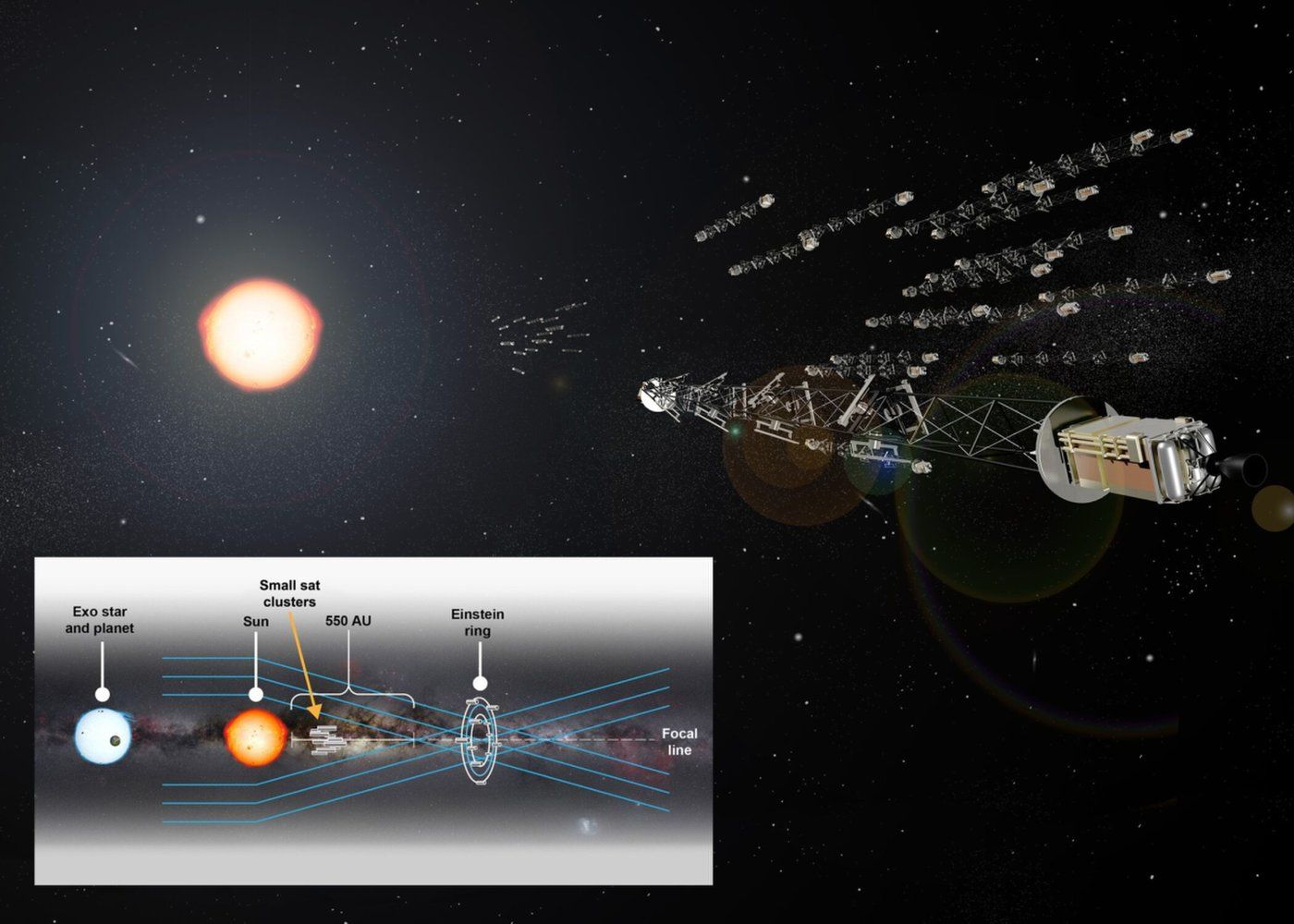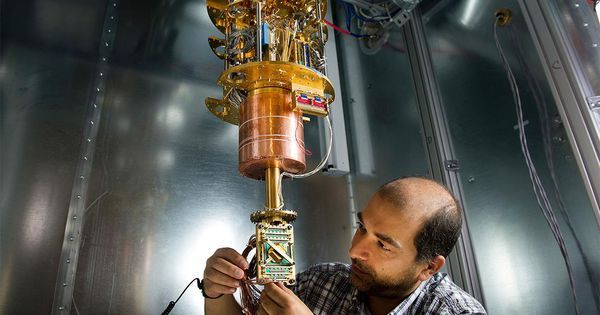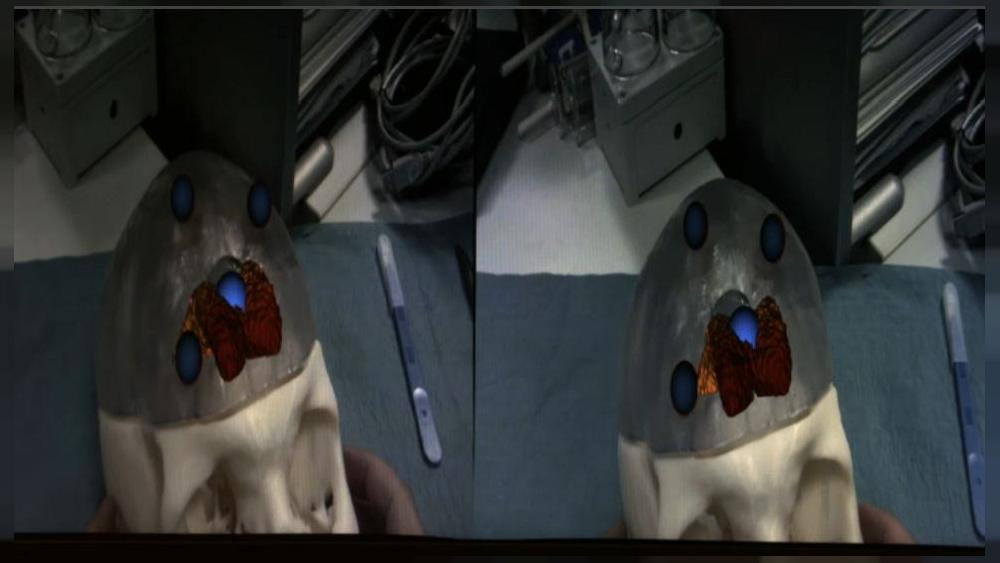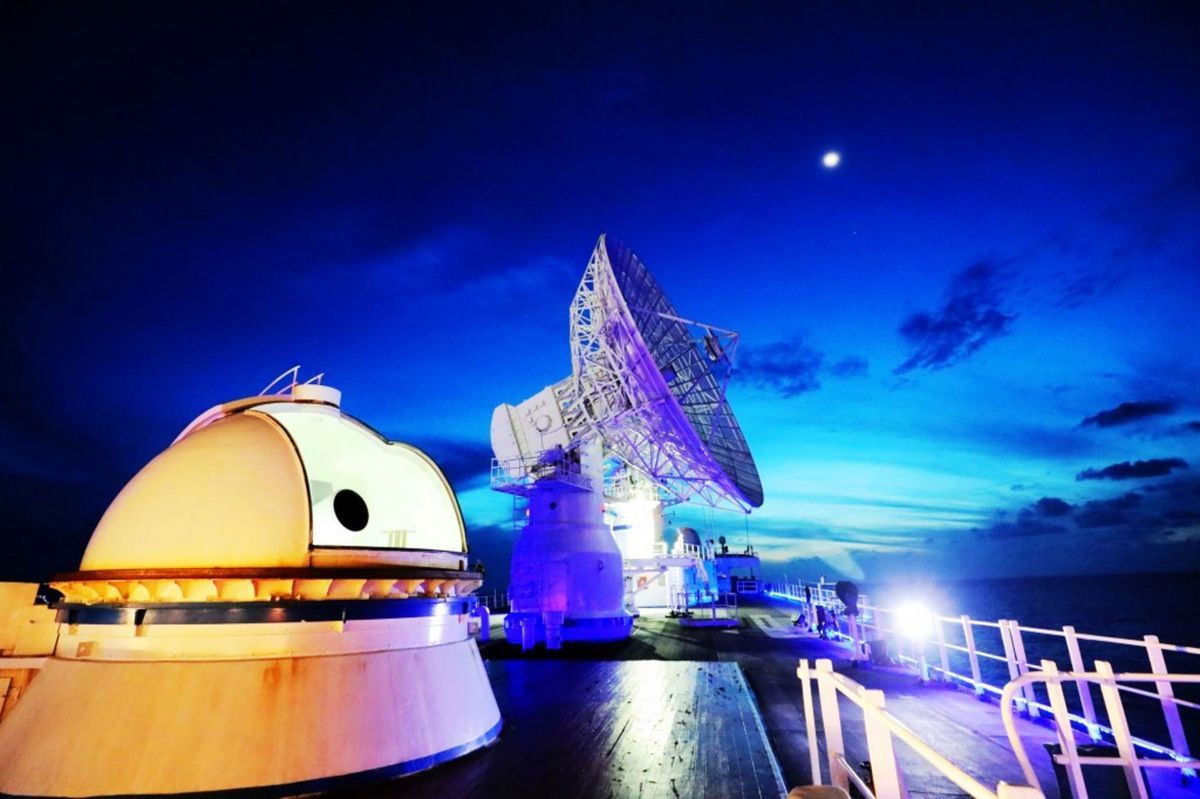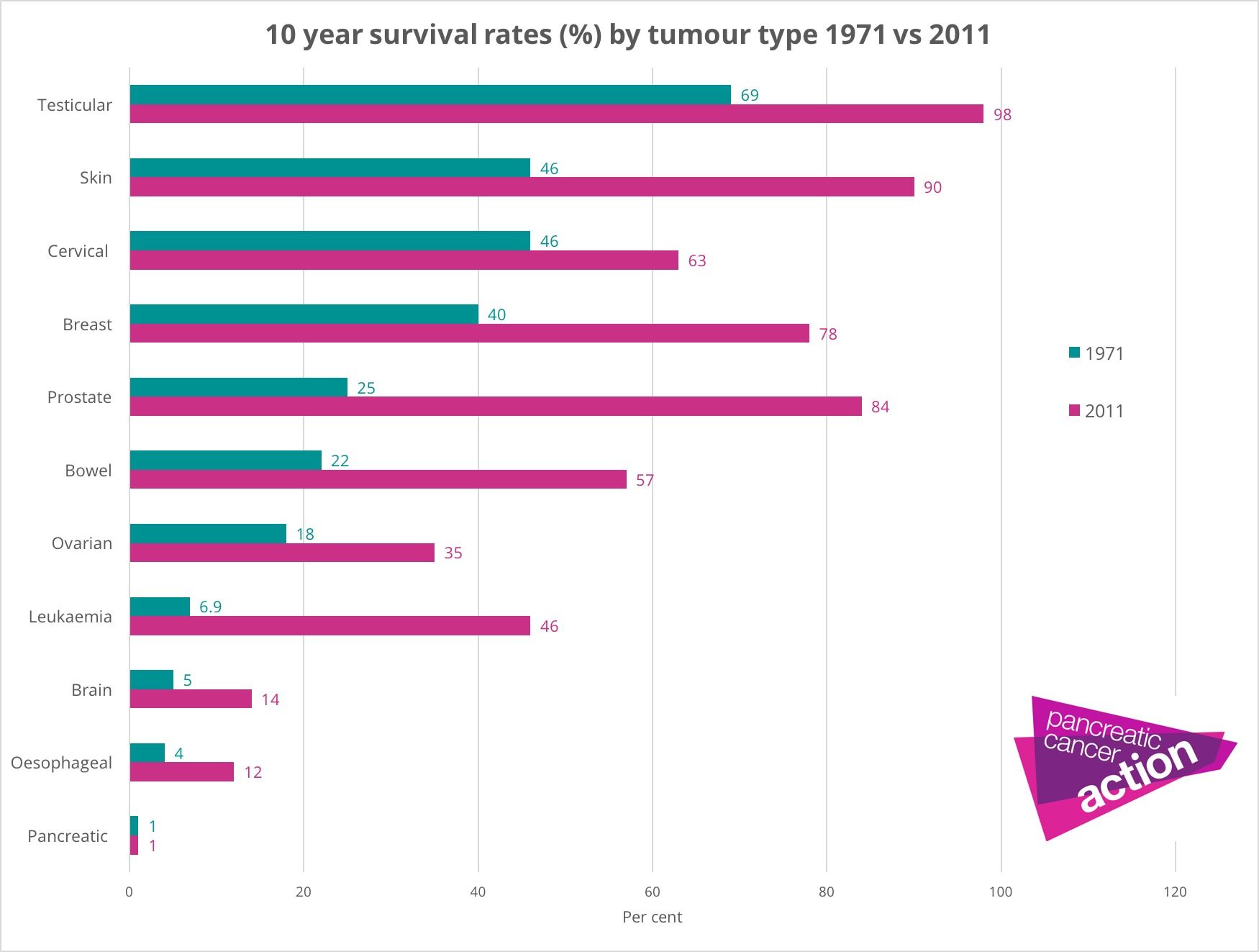Page 9278
Nov 26, 2018
NASA ScienceCasts: New InSight into the Red Planet
Posted by Michael Lance in category: space travel

We’ve always referred to Mars as the Red Planet because of its surface color. But what’s below that dusty crust? NASA InSight mission is currently cruising through space, set for our #MarsLanding and determined to find out.
Nov 26, 2018
Support LEAF in Project for Awesome 2018
Posted by Steve Hill in category: biotech/medical

Since 2007, the Project for Awesome, simply known as P4A, has been helping to make the world a better place. It is an initiative of the Foundation to Decrease World Suck, a Montana-based charitable organization run by Hank and John Green, and their plan is simple: to make the world suck less.
Continue reading “Support LEAF in Project for Awesome 2018” »
Nov 26, 2018
Exploring the resurrection of digital consciousness using AI
Posted by Carse Peel in category: robotics/AI
Researchers at Shree Devi Institute of Technology, in India, have recently carried out a study investigating the use of artificial intelligence (AI) to communicate with deceased loved ones. Like in the chilling sci-fi fantasy foreshadowed by popular television series Black Mirror, AI tools could soon allow people to connect with virtual versions of deceased dear ones.
Shriya Devadiga and Bhakthi Shetty, the two researchers who carried out the study, wanted to further examine this fascinating and yet rather unsettling possibility. They particularly focused on Replica AI, an app designed to create duplicates of people’s digital personalities, allowing others to communicate with them.
“We got the basic idea for our study from Eugenia Kuyda, the founder of Replika AI,” Devadiga told TechXplore. “Replika’s basic purpose is to create a personal AI that can help people to express themselves through helpful conversations. Someday, you will die, leaving behind a lifetime of text messages, posts, and other digital ephemera. For a while, your friends and family may put these digital traces out of their minds, but then later feel out of place because they miss the loved ones. So our main objective was to explore ways of relieving the pain of this loss, at least bitwise.”
Continue reading “Exploring the resurrection of digital consciousness using AI” »
Nov 26, 2018
‘Solar Gravity Lens’ Could Bring Exoplanets into Sharp Focus
Posted by Genevieve Klien in categories: alien life, innovation
An innovative deep-space concept that relies on a solar gravity lens (SGL) to enable enhanced viewing of exoplanets is under study by researchers at NASA’s Jet Propulsion Laboratory (JPL) and The Aerospace Corporation.
The SGL would provide 100-billion-fold optical magnification, allowing it to show details as small as 6 miles (10 kilometers) across — similar to being able to spot something the size of New York City on an exoplanet, study team members said.
As detailed in a press statement from The Aerospace Corporation, according to Einstein’s theory of relativity, light traveling through space will bend if it passes near sufficiently massive objects. This means that distant light will bend around the periphery of the sun, eventually converging toward a focal region as if it had passed through a lens. [13 Ways to Hunt Intelligent Aliens].
Nov 26, 2018
Quantum Computing Can Reshape Our Physical Infrastructure If We Let It
Posted by Genevieve Klien in categories: information science, quantum physics, robotics/AI, transportation
Despite growing excitement around the transformative potential of quantum computing, leaders in many industries are still unfamiliar with the technology that’s likely to prove more disruptive than Artificial Intelligence and blockchain. This ignorance seems particularly acute in industries that deal with physical systems and commodities. In an informal survey of two dozen executives in transportation, logistics, construction and energy, only eight had heard of quantum computing and only two could explain how it works.
In many ways this lack of awareness is understandable. Quantum computing’s value to our digital infrastructure is obvious, but its value to our physical infrastructure is perhaps less evident. Yet, the explosion of power and speed that quantum computers will unleash could indeed have a profound impact on physical systems like our transportation and utility networks. For companies, municipalities and nation states to stay competitive and capture the full benefit of the quantum revolution, leaders must start thinking about how quantum computing can improve our infrastructure.
Unlike classical computers, in which a bit of information can be either a zero or a one, quantum computers are able to take advantage of a third state through a phenomenon known as superposition. Superposition, which is a property of physics at the quantum scale, allows a quantum bit or qubit to be a zero, a one or a zero and a one simultaneously. The result is an astronomical increase in computational capacity over existing transistor-based hardware. Google, for example, has found that its quantum machines can run some algorithms 100 million times faster than conventional processors.
Continue reading “Quantum Computing Can Reshape Our Physical Infrastructure If We Let It” »
Nov 26, 2018
AP Exclusive: First gene-edited babies claimed in China
Posted by Xavier Rosseel in categories: bioengineering, biotech/medical, ethics, genetics
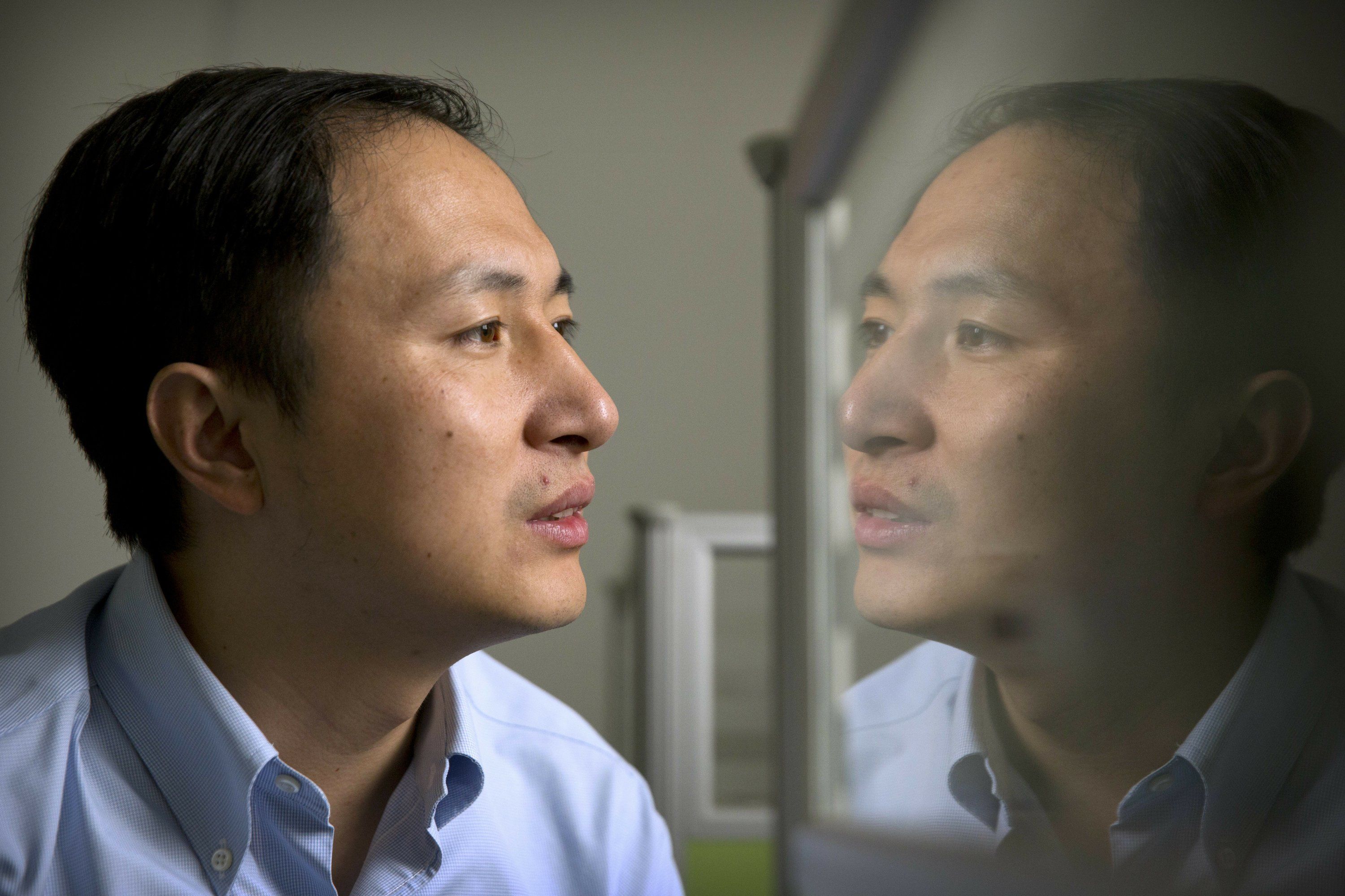
And so it begins…
HONG KONG (AP) — A Chinese researcher claims that he helped make the world’s first genetically edited babies — twin girls born this month whose DNA he said he altered with a powerful new tool capable of rewriting the very blueprint of life. If true, it would be a profound leap of science and ethics. A U.S. scientist said he took part in the work in China, but this kind of gene editing is banned in the United States because the DNA changes can pass to future generations and it risks harming other genes. Many mainstream scientists think it’s too unsafe to try, and some denounced the Chinese report as human experimentation.
Nov 26, 2018
Augmented Reality to Change Surgery Techniques
Posted by Genevieve Klien in categories: augmented reality, biotech/medical
Mounting an augmented reality device to a surgeon’s head — pioneering new research promises to save thousands of lives by merging classic techniques with modern technology.
At Pisa’s University, in Italy, researchers of the Vostars project, are working to develop a new kind of surgical visor in a bid to improve accuracy of interventions and reducing surgery times by at least 11%.
“The reality is of course the operating field, the anatomy that is in front of the surgeon; on this reality, we insert a virtual information that is acquired from the radiological images of the same patient. ”explained Vincenzo Ferrari, a biomedical engineer turned project coordinator for Vostars.
Continue reading “Augmented Reality to Change Surgery Techniques” »
Nov 26, 2018
China Is Building a $9 Billion Rival to the American-Run GPS
Posted by Derick Lee in categories: computing, government, mobile phones, satellites, security
Location data beamed from GPS satellites are used by smartphones, car navigation systems, the microchip in your dog’s neck and guided missiles — and all those satellites are controlled by the U.S. Air Force. That makes the Chinese government uncomfortable, so it’s developing an alternative that a U.S. security analyst calls one of the largest space programs the country has undertaken.
The Beidou Navigation System will be accessible worldwide by 2020.



